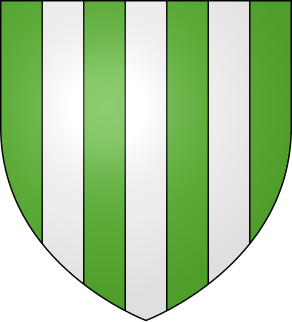See also
| This page lists people with the surname Rybář. If an internal link intending to refer to a specific person led you to this page, you may wish to change that link by adding the person's given name(s) to the link. |
Rybář (feminine: Rybářová) is a Czech language surname literally meaning "fisher" or "fisherman". The Slovak-language equivalent is Rybár.
Notable people with this surname include:
| This page lists people with the surname Rybář. If an internal link intending to refer to a specific person led you to this page, you may wish to change that link by adding the person's given name(s) to the link. |
Nagy is the most common Hungarian surname, meaning "great".
Morales is a Spanish surname. Notable people with the surname include:
Novak, Novák, Nowak or Novack is a surname and masculine given name, derived from the slavic word for "new", which depending on the exact language and usage, translates as "novice", "new man", "newcomer", or "stranger".
Jana is the spelling of several unrelated given names.
Otte is a surname and given name. Notable persons with that name include:

Ramírez is a Spanish-language patronymic surname of Germanic origin, meaning "son of Ramiro". Its correct spelling in Spanish is with an acute accent on the i, which is often omitted in English writing. It is the 28th most common surname in Spain. It is also the 42nd most common surname in the U.S. and the 9th most common in Mexico.
Černý is a Czech language surname, which means "black". Like many other surnames, this originally made reference to a person's physical qualities, namely dark hair colour or perhaps darker complexion. Variants of the name include Cerny and feminine forms Černá in Czech, Čierna in Slovak, and Czarna in Polish.
Dalibor is a 1956 Czech film rendering of the opera of the same name by Bedřich Smetana. Directed by Václav Krška, the film was entered into the 1956 Cannes Film Festival.
Carolina is a feminine given name in Spanish, English, Italian, Portuguese, Polish, Czech, Slovak, German, Galician, Dutch and French, derived from the masculine name Carolus which is Latin for Charles, generally meaning 'free man' or 'freeholder'; however, Carolina can also mean 'song of happiness or joy' from a French origin. Can also mean ‘strong.’
Rybár is the Slovak surname literally meaning "fisherman". The Czech-language equivalent is Rybář.

Against All is a 1956 Czechoslovak historical drama film directed by Otakar Vávra. It is based on the novel Proti všem by Alois Jirásek. The film's budget was 25 million KČs which made it the most expensive Czech film of the time.
Jana Rybářová is a Czech synchronized swimmer.

López is a surname of Spanish origin. It was originally a patronymic, meaning "Son of Lope", Lope itself being a Spanish given name deriving from Latin lupus, meaning "wolf". The surname is first attested in Old Castile in the heart of Spain, where the name originated in Visigothic times; however, the name is not of Germanic origin. Its Portuguese equivalent is Lopes, its Italian equivalent is Lupo, its French equivalent is Loup, its Romanian equivalent is Lupu or Lupescu and its Catalan and Valencian equivalent is Llopis.
Vladimir Rybář was a Yugoslav diplomat and lawyer. He is best known for representing Yugoslavia diplomatically, notably at the Bretton Woods Conference in July 1944 and the United Nations Relief and Rehabilitation Administration in 1943 onwards. Rybář also held various positions at diplomatic missions across Europe and North America.
Nagyová is a Czech- and Slovak-language feminine surname derived from the Hungarian surname Nagy according to the rules of Czech name and Slovak name formation, literally meaning "of Nagy".

Irena is a traditionally European feminine given name.
Hlaváč is a Czech surname. Notable people include:

Jana Rybářová was a Czech film and stage actress. Discovered by film director Václav Krška, she was recognized as one of the most notable Czech actresses of 1950s despite featuring only in 6 films.
Jana Rybářová may refer to:
Silvie Rybářová--Kodešová is a Czech female open water swimmer who represented the Czech Republic in the world championships. She resides in Brno.